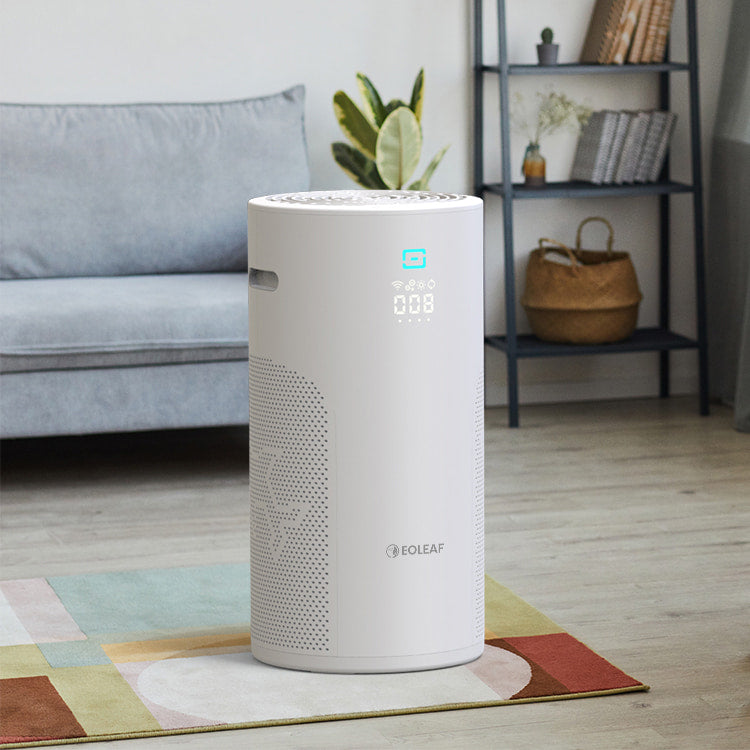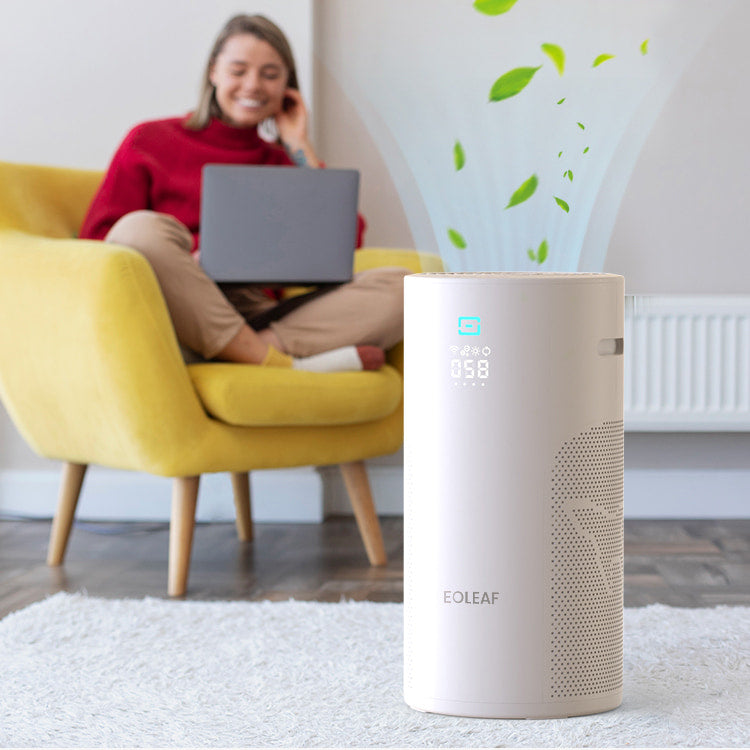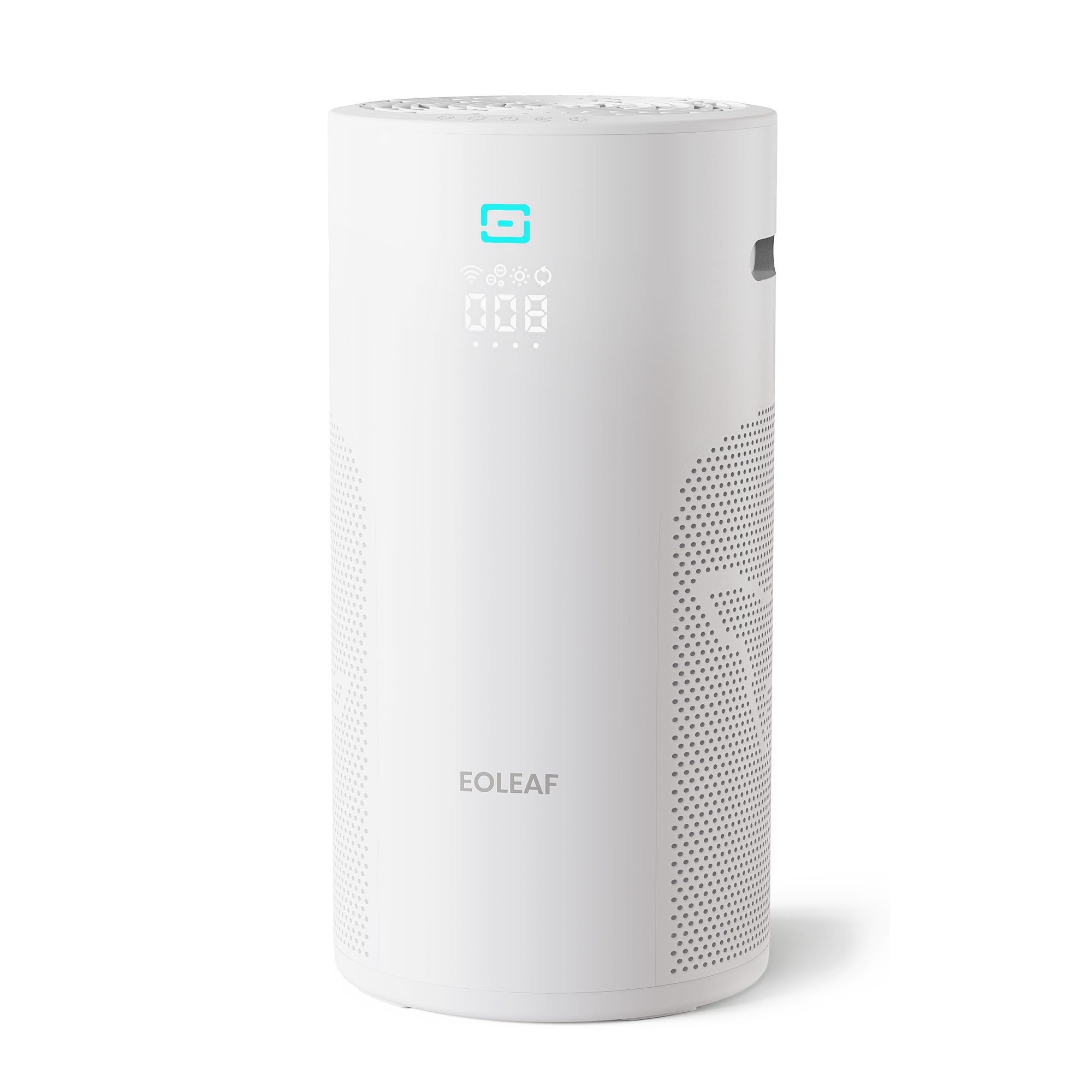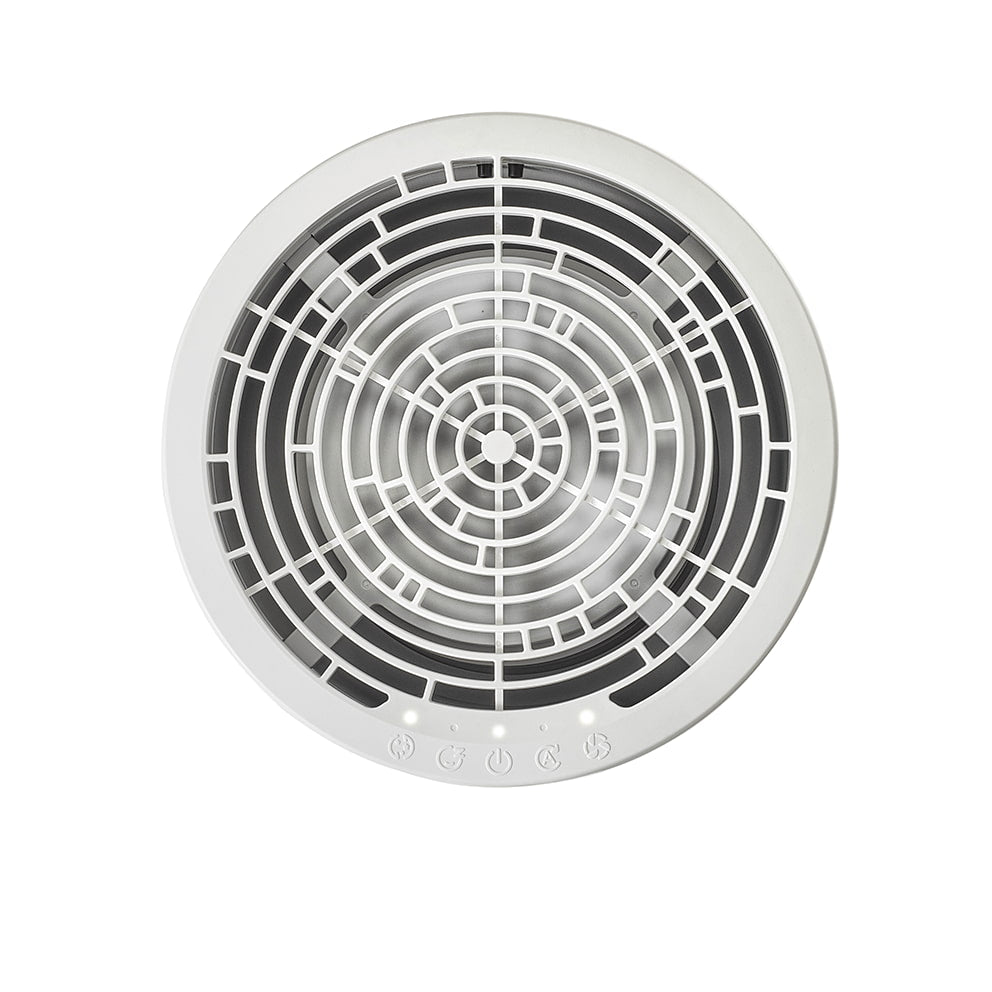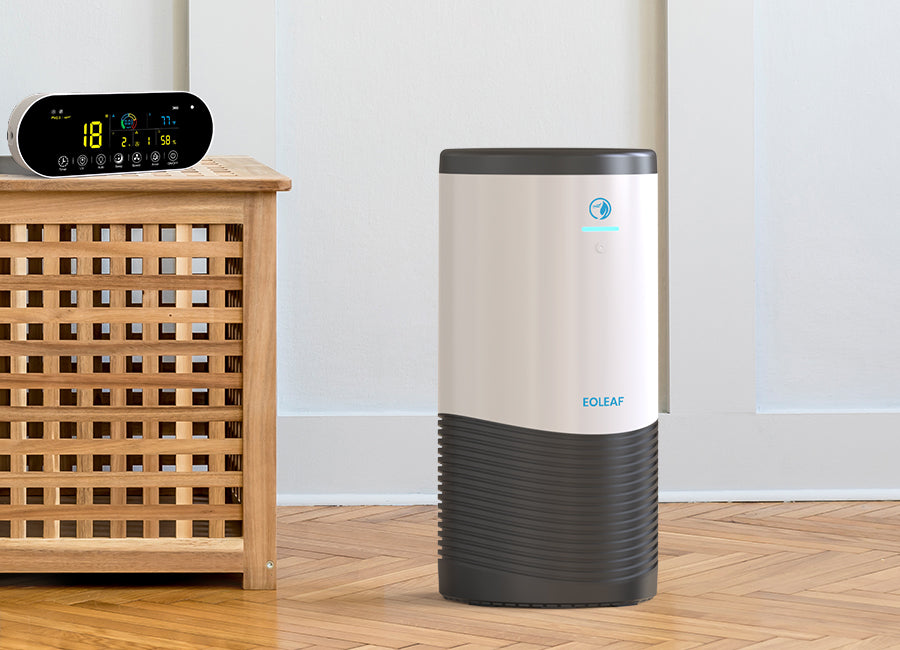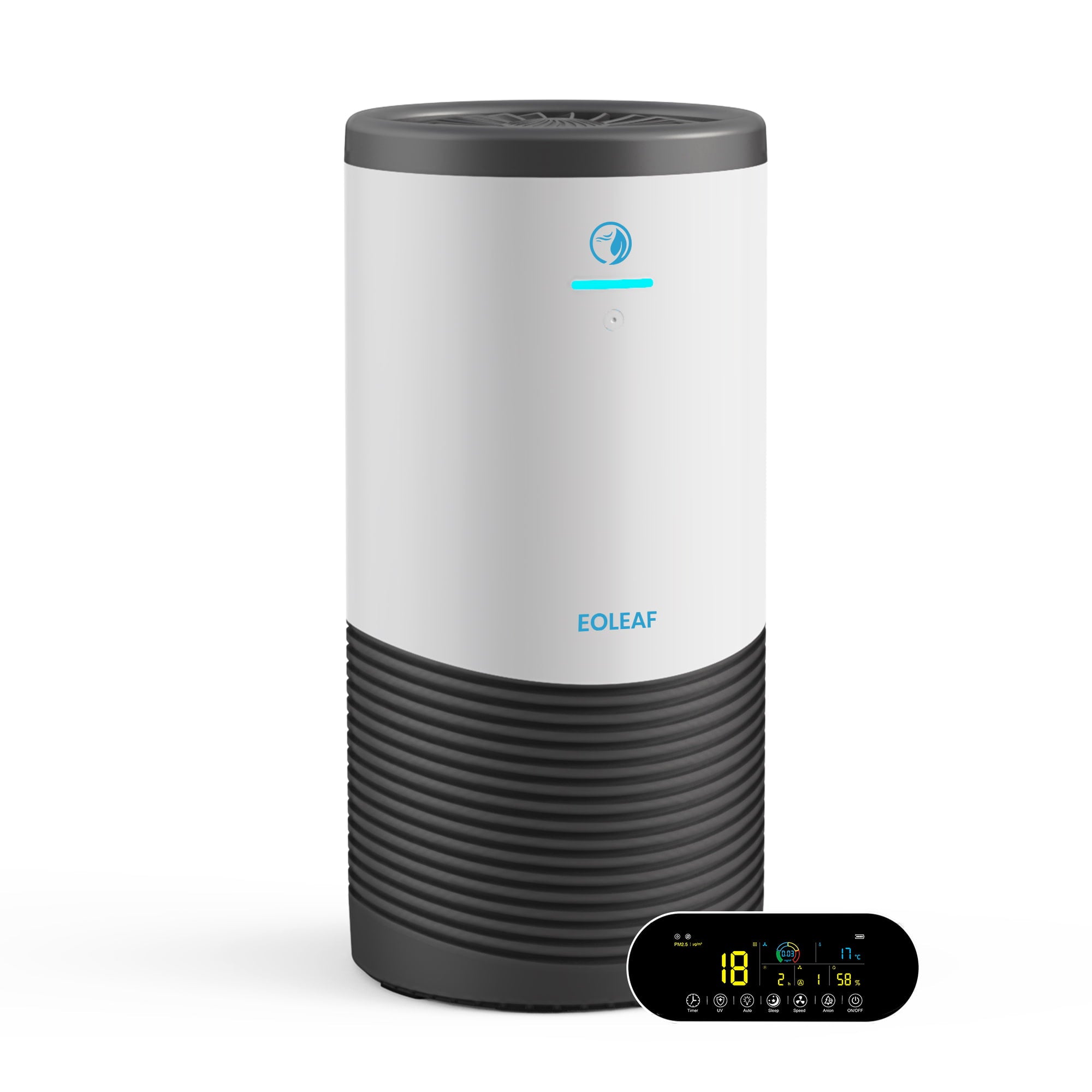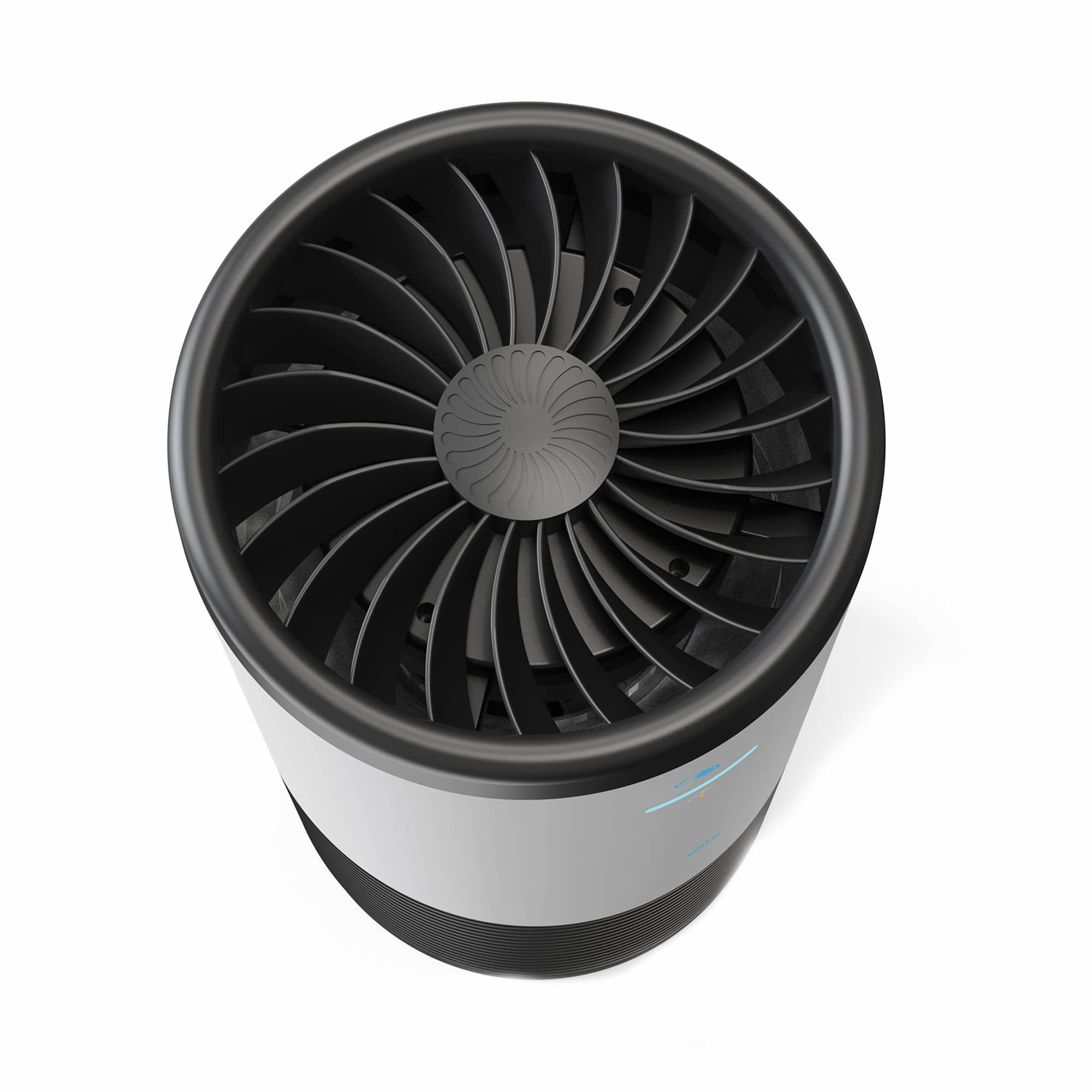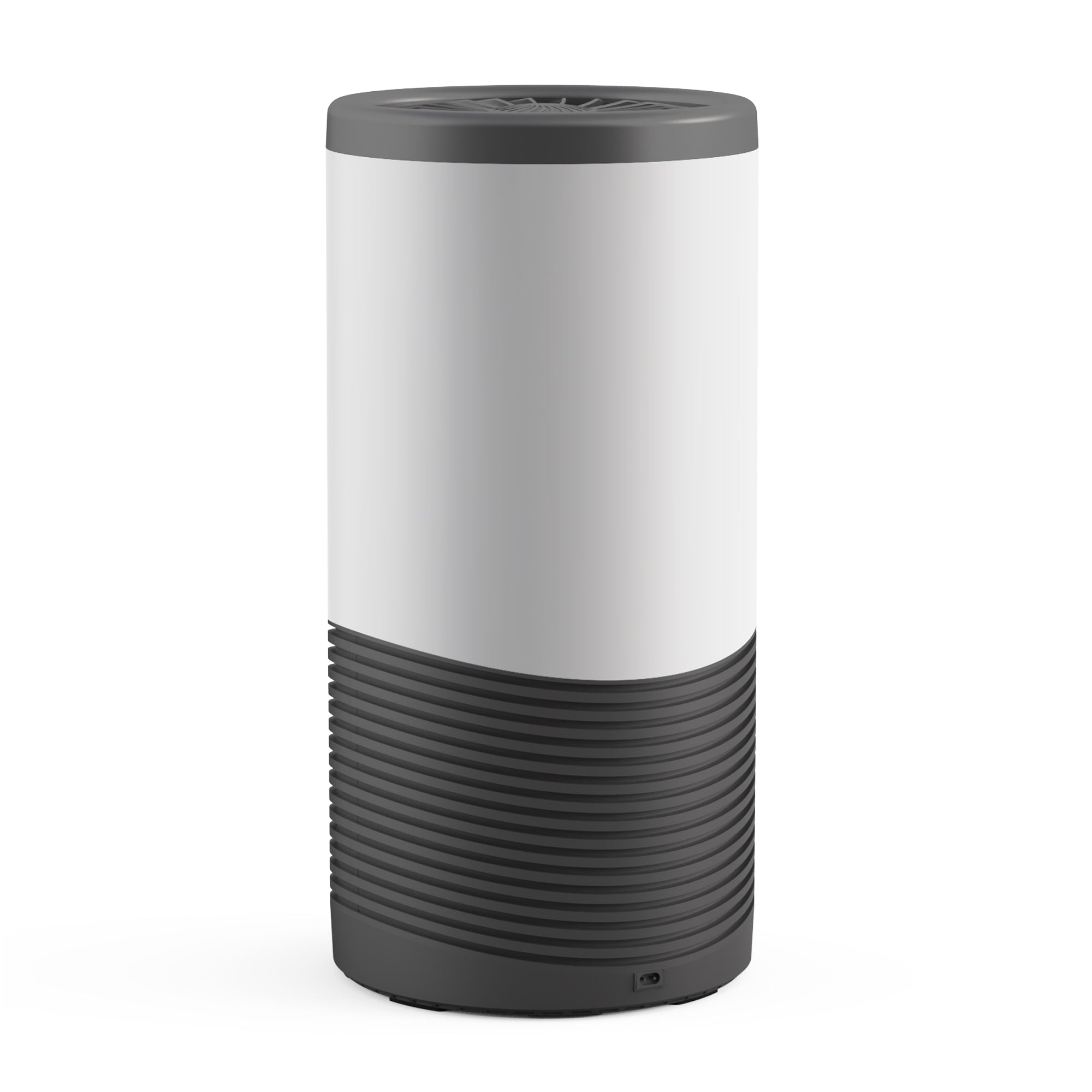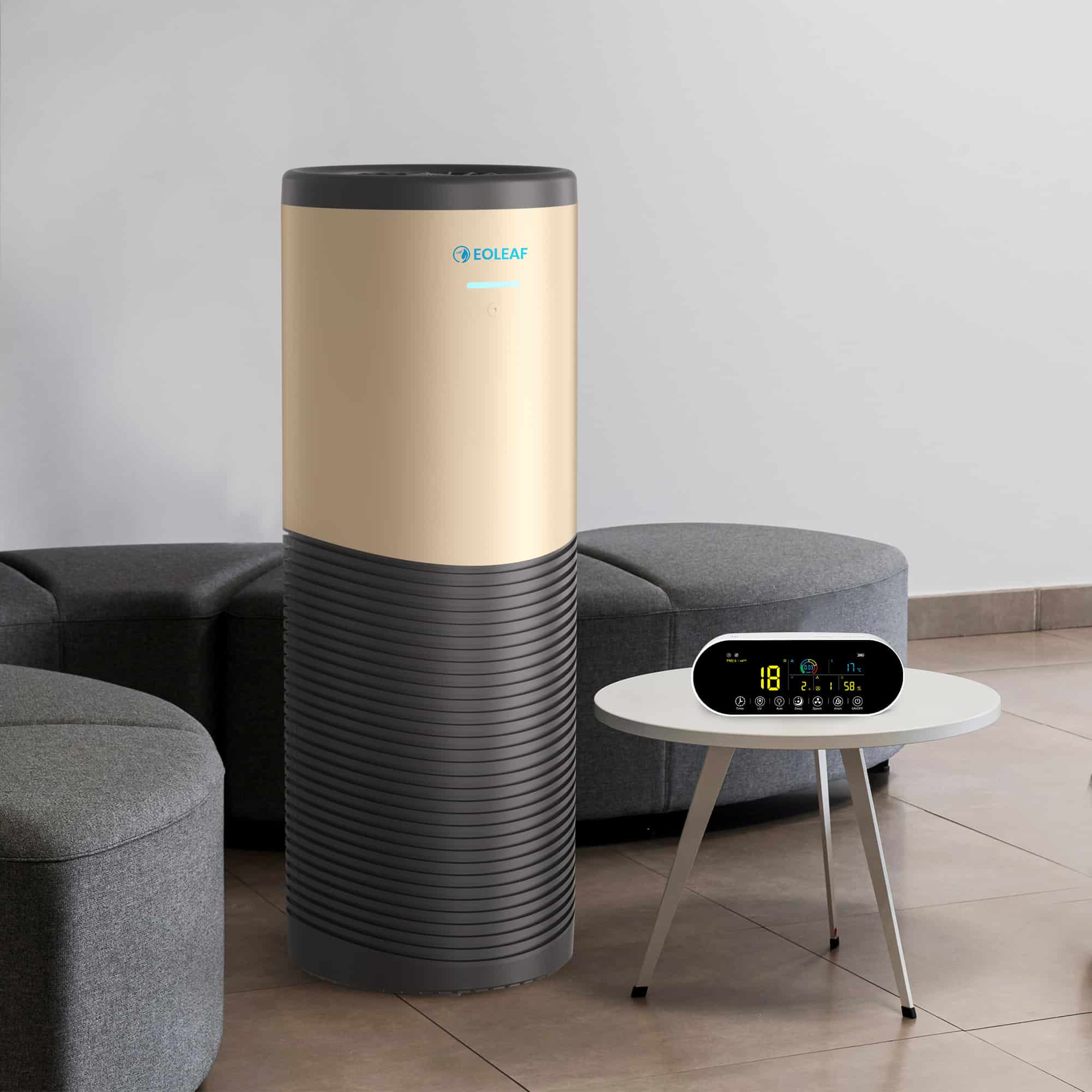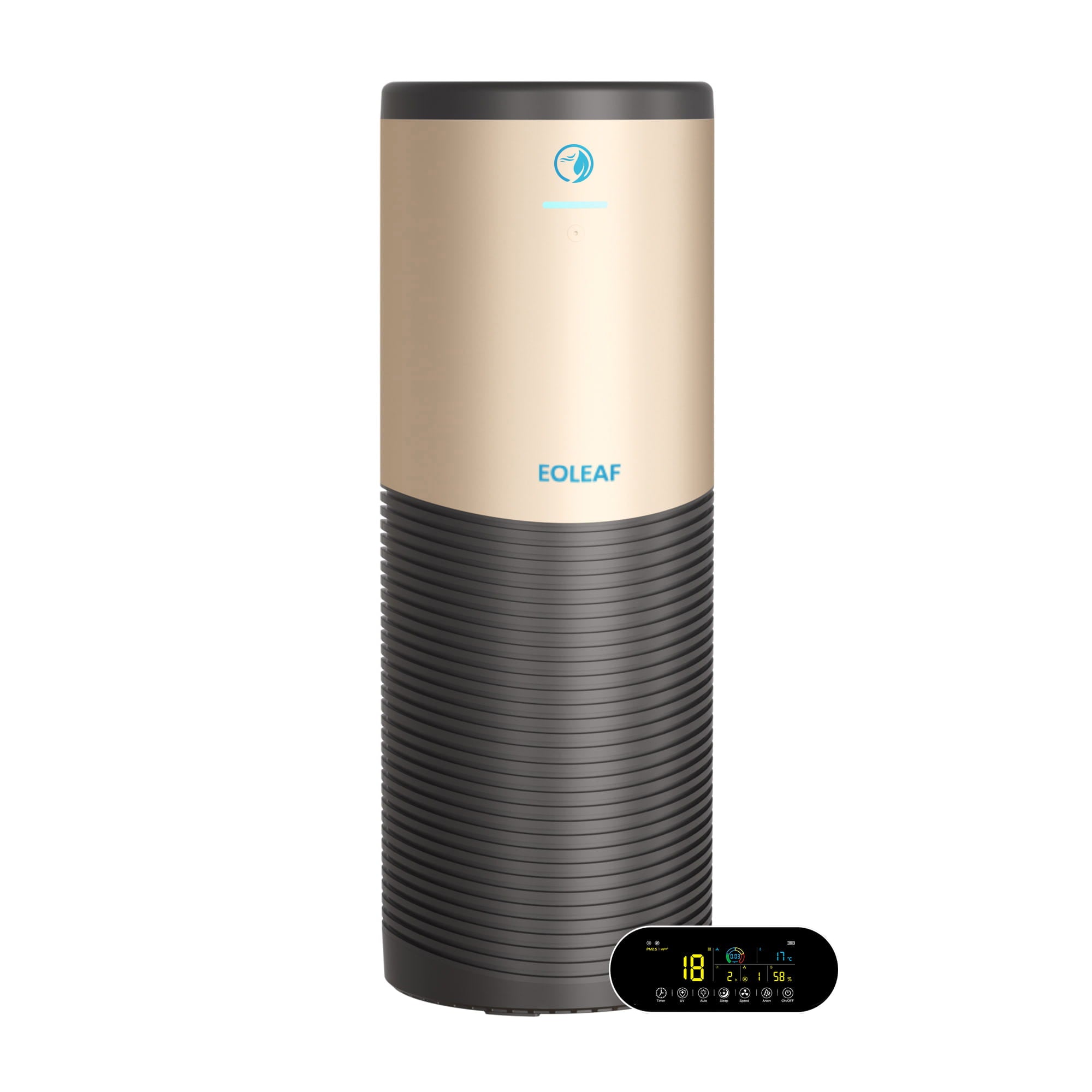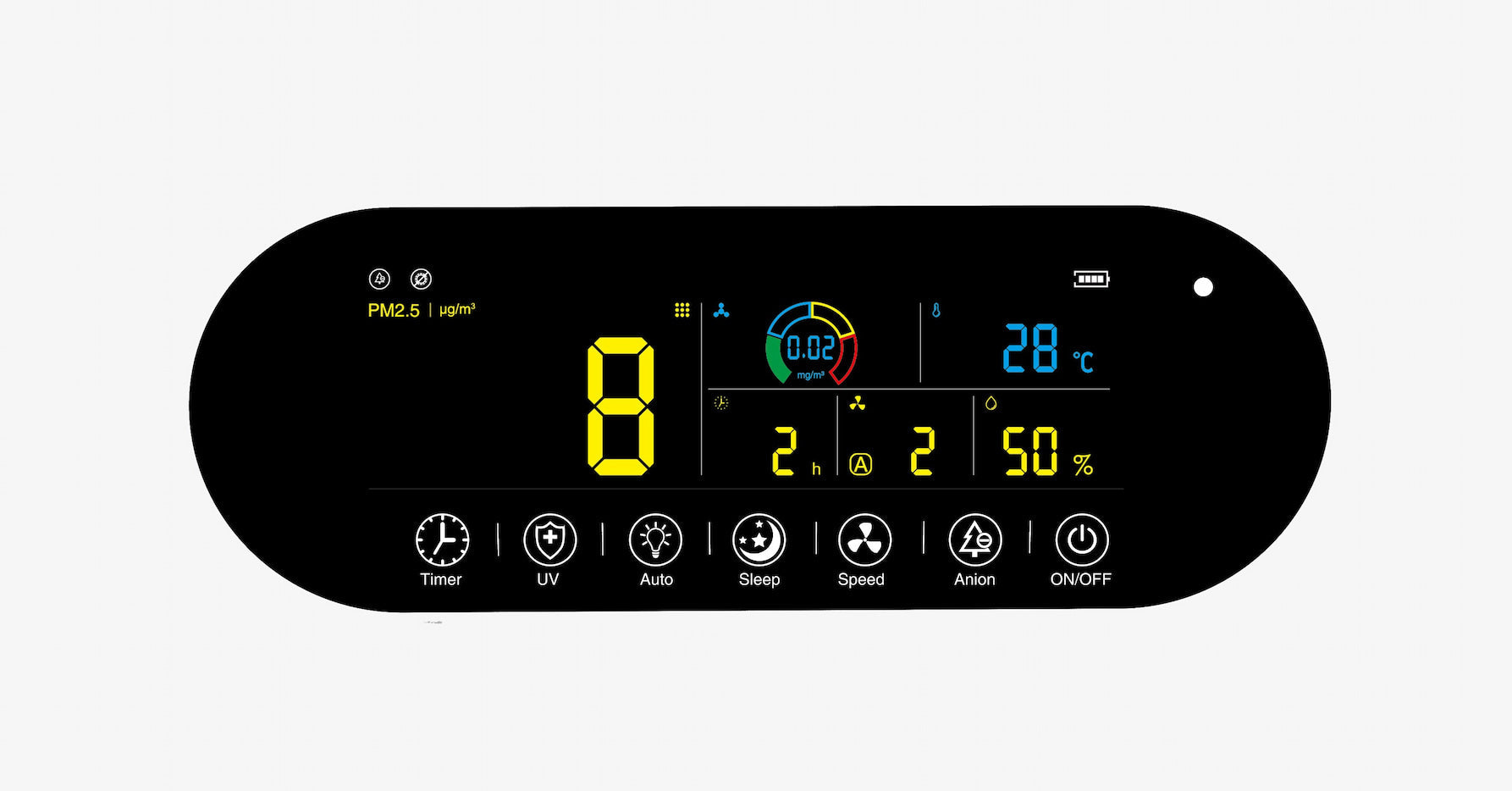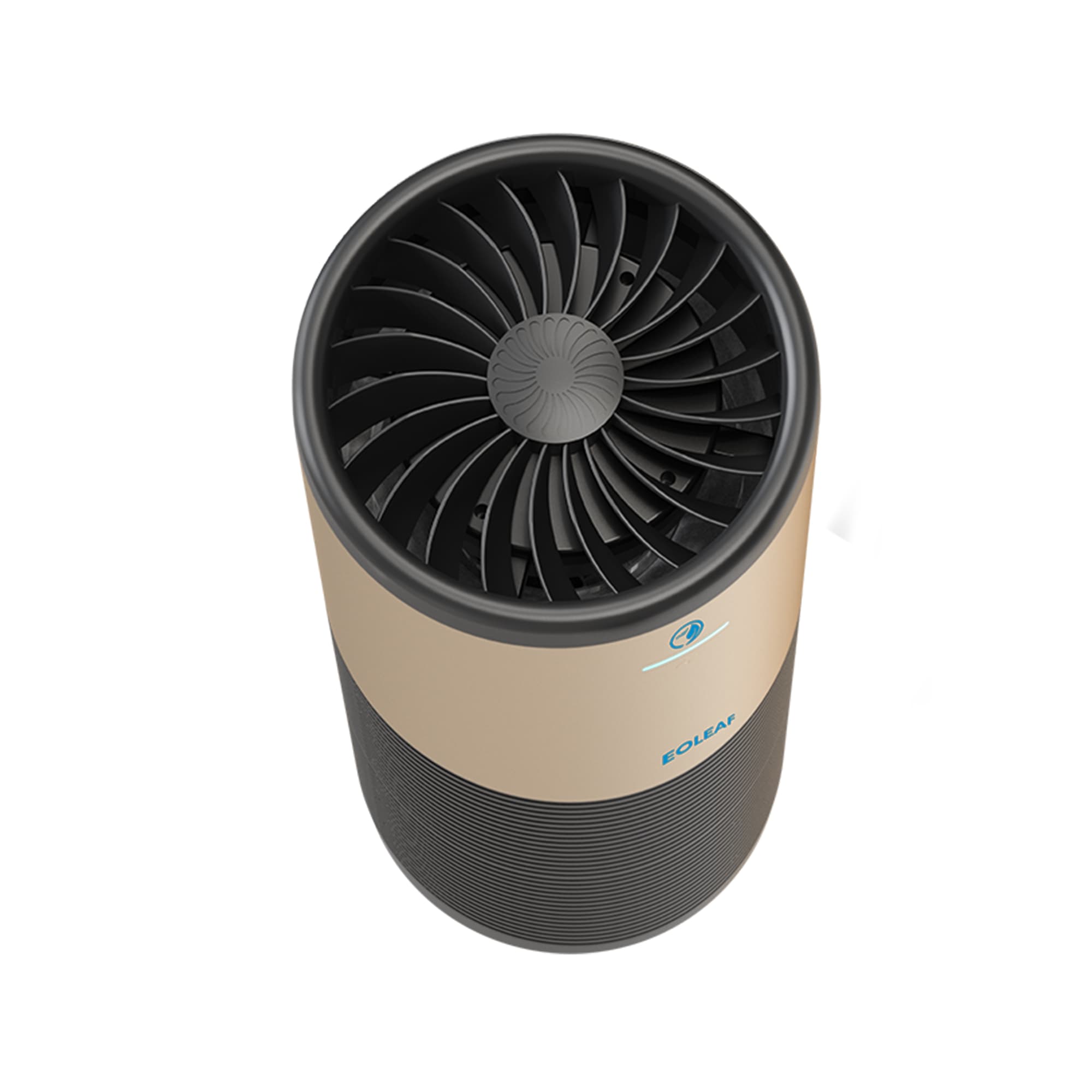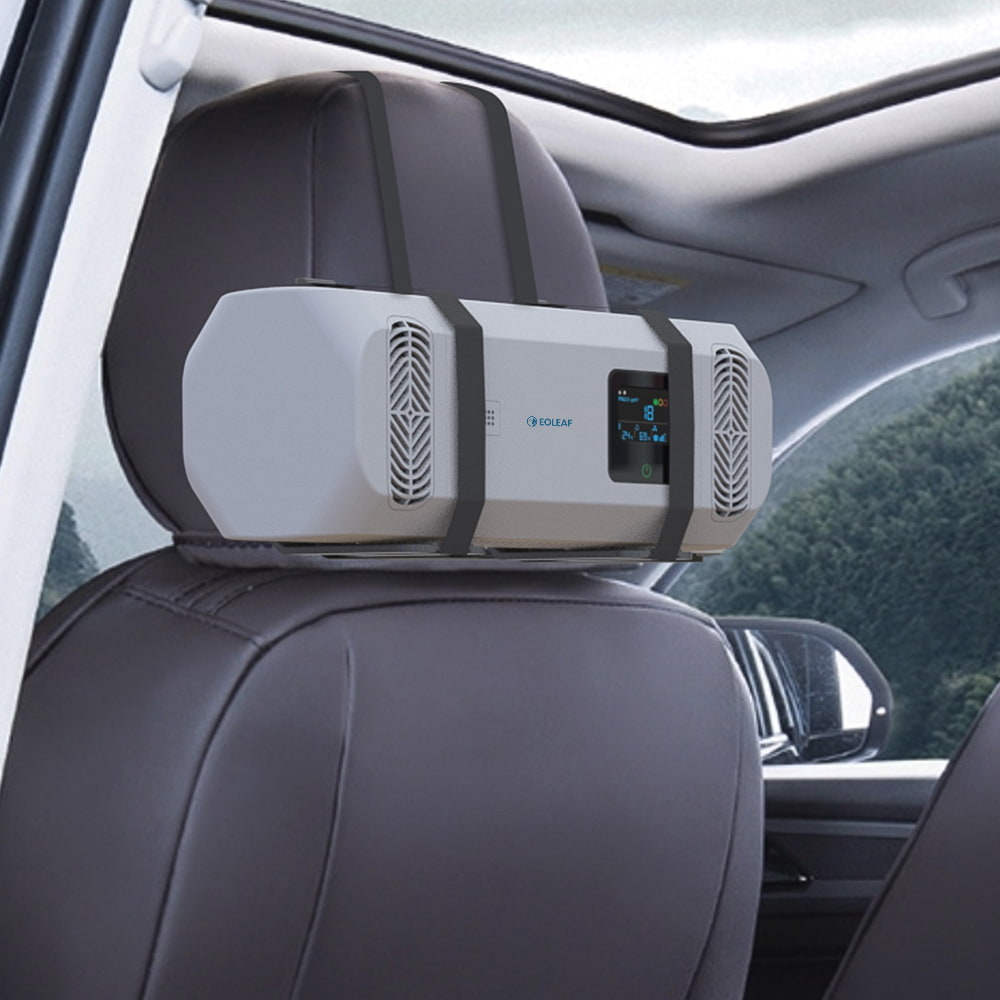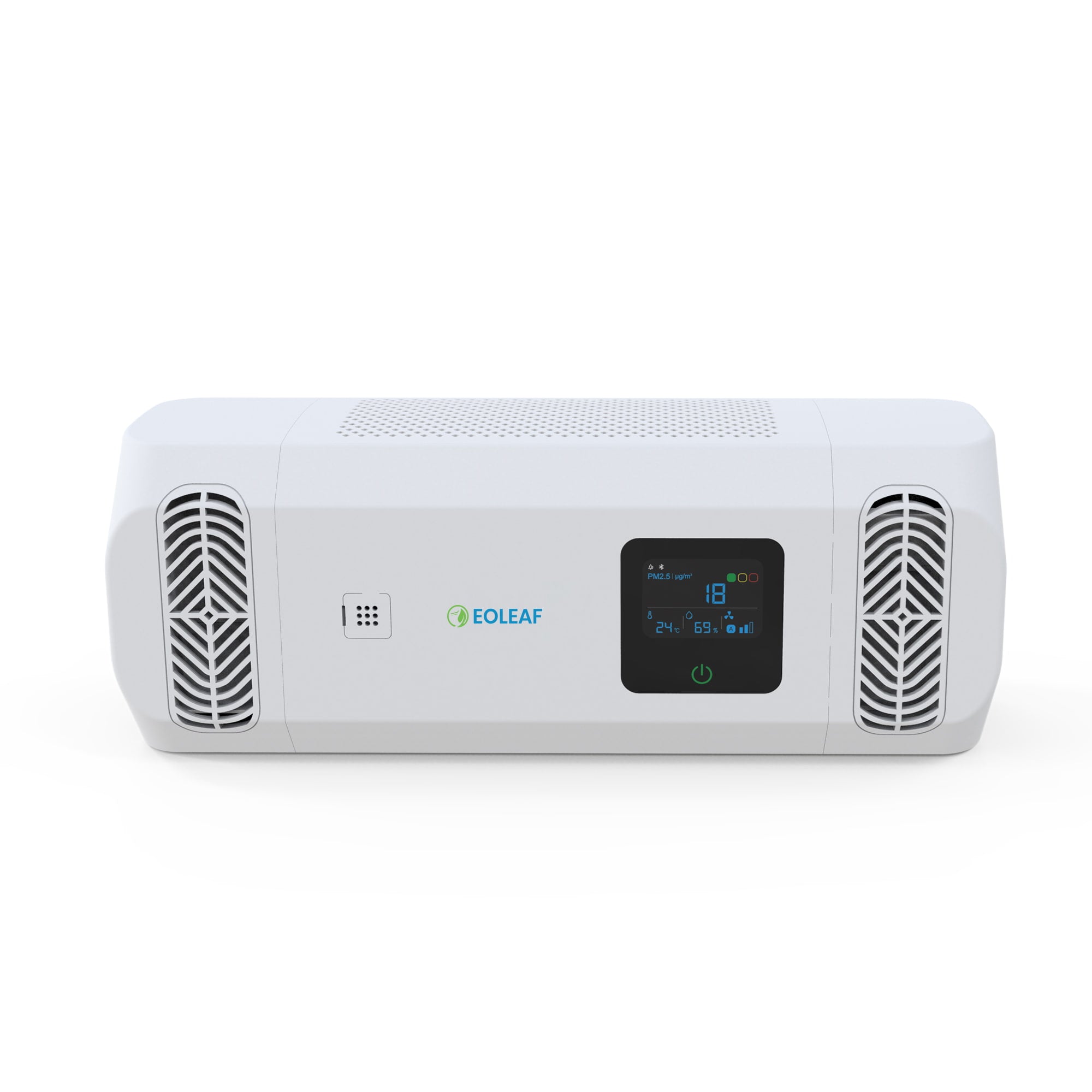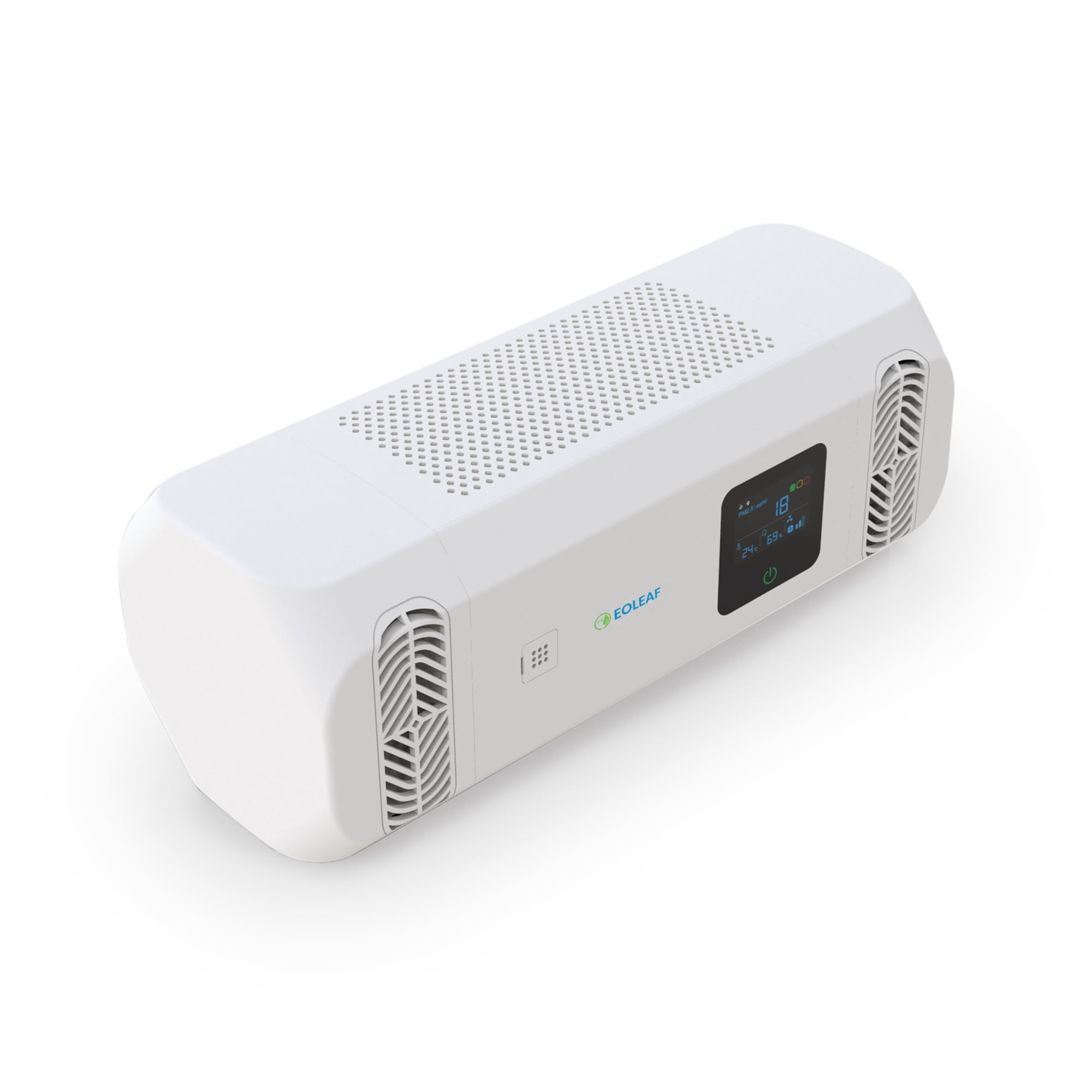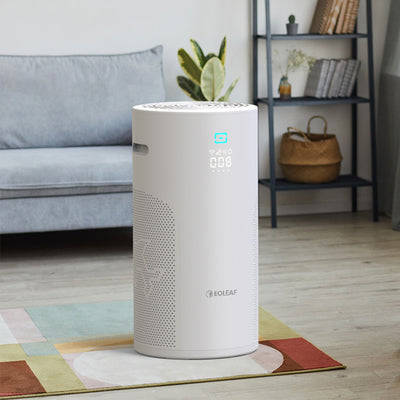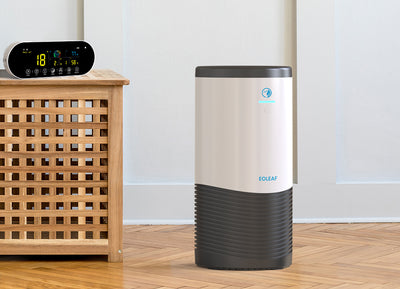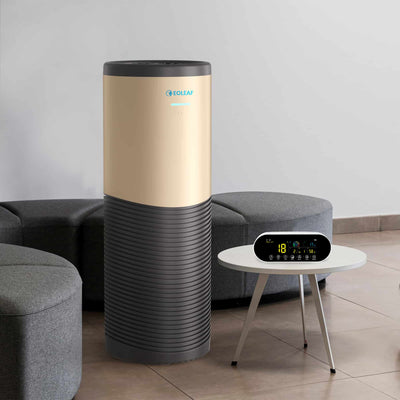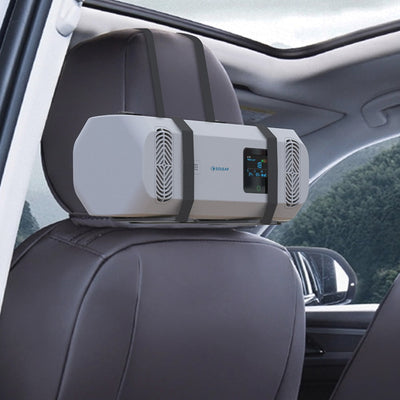Buying an air purifier for coughing
If you are experiencing a cough that simply will not go away, indoor air pollution may be a contributing factor. A lingering cough may have many causes, but airborne pollutants cause significant irritation on the respiratory system. How does air pollution and air quality irritate the upper airways? Can an air purifier for coughing help? Read on to learn more.

What is a cough?
What causes coughing?
Every individual coughs differently. Some coughs are long, some are short, some are deep, some are shallow. It is a reflex that occurs when your body feels the need to clear mucus or irritating airborne particles from your airways and, as mentioned above, can have many causes, some of which may include respiratory conditions, illness, and even allergies. Typically, coughing involves a deep inhalation and an explosive exhalation1.
Coughing fits and coughing sessions are as annoying as they are frustrating, impacting many parts of your well-being and daily life. Studies have shown that coughing is a common symptom of exposure to air pollution and poor air quality, even contributing to chronic bronchitis and chronic phlegm in healthy adults2,3. A 2015 study in China, a rapidly-industrialising country plagued by severe air pollution in more than half of its provinces, found that particulate matter (PM) leads to chronic cough and other severe respiratory symptoms4. Coughing is not specific to PM levels, however. It may be caused by any of the three main types of air pollution:
- Biological – bacteria and viruses; allergens including dust, dust mites, pollen, pet hair and dander, and mould and spores
- Chemical – volatile organic compounds or VOC, ground-level ozone
- Fine particle pollution – particulate matter including PM10, PM2.5, and PM0.1
An air purifier with a powerful fan speed may be extremely helpful in removing airborne irritants in the home and the office. If you are already in possession of an air purifier, a lingering cough may be signs that your air filter is saturated and that it is time for a replacement.
Buying an air purifier for coughing
-
Filters 99.97% of pollutants and irritants using unique and innovative filtration technologies
-
Real-time air quality data
-
Quiet yet powerful devices (up to 670 m3/hr)
-
Discreet and elegant design
-
Easy to use (equipped with Automatic mode) and does not require installation or assembly
-
Can be placed anywhere in your space thanks to our 360° technology
-
Can be controlled remotely via smartphone app
-
Smart and customisable devices (smart scheduling, automatic power off/on, etc.)
Can I use an air purifier if I have a severe cough?
An air purifier can be used in many circumstances to clean the air and protect you from and alleviate negative health symptoms. Do keep in mind that if you are experiencing a cough so severe that it causes throat pain, chest pains, or difficulty breathing (shortness of breath), seeing a doctor is highly advised. A medical-grade air purifier, like those offered here at Eoleaf, may be particularly helpful to protect you or others in your home or workplace from airborne illness. For example, if a family member, roommate, or coworker is coughing due to bronchitis, pneumonia, or other contagious virus or bacteria, a HEPA-certified air purifier removes germs found in aerosols that are expelled when someone coughs.

Benefits of an air purifier for coughing
Air purifiers are an important product to have in the home or workplace when attempting to reduce respiratory symptoms caused by air pollution and poor air quality. Studies have demonstrated that air purifier adherence amongst families with asthmatic children is growing dramatically and that air purifiers with HEPA-certified filters and powerful fan speeds alleviate asthma symptoms in children5. Another study performed on adults suffering from chronic obstructive pulmonary disease (COPD) found that the use of a medical-grade air purifier to reduce indoor PM levels led to an improvement in respiratory symptoms including breathlessness, cough, and sputum in the throat and chest. It also decreased the need for rescue medication for COPD sufferers6.
During the COVID-19 pandemic, governments around the world recommended HEPA-certified air purifiers as a means of reducing pathogen spread. Air purifiers have been established as a tried-and-true method of reducing disease transmission for COVID-19, colds, coughs, respiratory illness and issues, pneumonia, allergies, hay fever, bronchitis, and lung infections, to name a few.
Although medical-grade HEPA filters undergo third-party testing to guarantee a removal of 99.97% of air pollutants down to a size of 0.01 microns in a single pass, they do have their limitations. They do not remove chemical pollution (VOCs). This is why it is always recommended to purchase an air purifier that has multiple, complementary filtration technologies, especially activated carbon filtration. Activated carbon filters are VOC-removing powerhouses, and they have also been shown to reduce asthma symptoms and provide better sleep quality, especially those occurring at night, in children when installed in rooms where they sleep like bedrooms. A persistent cough heavily impacts sleep quality in both children and adults alike.
Some of the benefits of purchasing an air purifier for coughing include:
- A reduction in the number of coughing spells and throat pain
-
The elimination of airborne allergens and toxins that lead to coughing spells and airway irritation

How long will it take for an air purifier to provide cough relief?
The amount of time that it may take for an air purifier to provide coughing relief may vary from person to person. Once an air purifier for coughing is installed in your indoor space and turned on, the process of removing air pollutants and cleaning the air is immediate. Many people feel relief from their coughing spells and other symptoms caused by chronic health conditions fairly quickly.
As mentioned above, if you have a health condition or issue that requires treatment, it is always recommended to consult your doctor in order for it to be resolved.
How to choose an air purifier for coughing and get the most out of it?
NeoPur 400 air purifier
40 m² (450 sq ft) coverage area - Smart & Connected
TeraPur 600 air purifier
80 m² (850 sq ft) coverage area - Ultimate all-in-one
AltaPur 700 air purifier
120 m² (1300 sq ft) coverage area - Professional model
HEPA and multi-layer filtration technologies
In order for an air purifier to trap the most airborne pollutants, even those down to the smallest of sizes, ensure it is equipped with a medical-grade HEPA filter. For a HEPA filter to be considered ‘medical-grade’, it should be categorised as either H13 or H14. All of Eoleaf’s air purifiers contain H13 HEPA filters and fight air pollutants all throughout the day and even overnight whilst you sleep, all thanks to our convenient Night mode. When left running on Night mode, all of the indicator lights are dimmed and the device is set on its lowest fan speed so as not to disturb your sleep.
Activated carbon filter for chemical pollution
Investing in an air purifier that contains other technologies in addition to a HEPA filter is highly recommended. Our air purifiers at Eoleaf come equipped with 8 different purification technologies, all designed to filter different types of air pollution!
Another technology that is absolutely essential in a high-quality air purifier for coughing is an activated carbon filter. Devices only equipped with HEPA filters cannot achieve fully clean air since they cannot combat chemical pollution (VOCs and ozone). Therefore, it is important that this filter is included when combatting indoor air pollution for respiratory health. Activated carbon filters are also very effective at removing unpleasant or bad odours from your indoor spaces!
Additional technologies
Ultraviolet (UV) sterilisation is another excellent technology found in certain air purifiers, especially when trying to combat coughing spells. Many types of germs may cause coughing, including the common cold and flu. Pathogens are transmitted in aerosols that are released into the air when infected people cough, talk, sing, etc. UV sterilisation removes pathogens from the air, significantly reducing the likelihood that you will breathe them in and become ill.
As previously mentioned, our 8-step filtration method ensures the removal of many types of air pollutants. Our air purifiers remove:
- Germs (bacteria and viruses)
- Dust particles and dust mites
- Outdoor allergens like pollen
- Pet hair and dander
- Mould and airborne spores

When should I use an air purifier for coughing?
There are certain moments when using an air purifier for coughing in your indoor spaces is particularly useful:
- During cold season and flu season: leaving an air purifier running indoors helps to stave off these highly contagious viruses
- When someone in your home or workplace is sick: keep your air purifier running to protect yourself from infection, especially if someone in your space has chronic bronchitis or pneumonia
- During allergy season and periods of poor air quality: if outdoor air pollution is particularly high (due to pollen or fine particle pollution concentrations, for example, that may be causing harmful health effects like allergies), leave your air purifier running so as to avoid inhaling harmful pollutants that make their way indoors (remember: indoor air is 2 to 5 times more polluted than outdoor air)
Maintain filters
The importance of timely replacements of your air filters cannot be overestimated when combatting coughing and other respiratory issues. All air purifiers, regardless of brand, require regular filter changes. This is the only way to ensure that your air purifier will continue to provide quality air filtration. If an air purifier with an oversaturated filter is left running, it can actually re-release pollutants back into your space! Be sure to maintain your filters.
Filter change requirements vary depending upon your air purifier’s model, the fan speed you typically use, and the frequency of your device’s usage. Some brands that offer lower-quality filters require filter changes every 3 to 4 months. High-quality filters like Eoleaf’s require filter replacements just once a year. Many of Eoleaf’s devices and products come with a filter change indicator when it is time to replace your filter.
The Eoleaf difference
If you are suffering from lingering coughing spells, our products here at Eoleaf offer the most advanced air purification technologies on the market. We are here to answer any questions you may have regarding our air purifiers or air purification in general. Our goal is to help improve your health and well-being by bringing you clean indoor air. Reach out to our team anytime. We have also created an in-depth Buying Guide to help you consider all of the factors necessary before purchasing an air purifier.

Frequently Asked Questions
Can air purifiers help alleviate coughing symptoms?
Yes! Air purifiers can help alleviate symptoms of many respiratory conditions including coughing, wheezing, asthma and COPD symptoms (asthma attacks), shortness of breath, and more.
What types of filters are most effective for capturing airborne particles that may cause coughing?
A HEPA-certified purifier is always recommended for the removal of small airborne particles that may lead to coughing. An activated carbon filter and UVC sterilisation technologies are also excellent complementary technologies.
Do air purifiers eliminate common allergens known to trigger coughing, such as dust mites and pet dander?
Absolutely! Removing allergens from your indoor space is exactly what air purifiers are designed to do. An air purifier containing a HEPA-certified filter will be the most effective at removing allergens like dust, dust mites, pet hair and dander, pollen, and mould and its spores.
Can air purifiers reduce indoor air pollution and respiratory irritants that contribute to coughing?
Of course! An air purifier with a HEPA-certified filter will remove 99.97% of air pollutants down to 0.01 microns in a single pass, even the smallest of air pollutants (particulate matter). According to studies, PM has been known to cause chronic coughing, so removing it from your indoor air can provide substantial relief.
How long does it typically take for an air purifier to show noticeable improvements in reducing coughing?
As soon as an air purifier is plugged in and turned on, it will start removing air pollution immediately. Noticeable improvements in coughing episodes should occur fairly quickly once the air has been cleared of irritating air pollutants.
Can I use an air purifier when someone in my house has pneumonia?
Yes, and you should! This is a perfect example of when an air purifier should be used in the home. To reduce pathogen transmission, be sure to turn on the UVC sterilisation feature on your Eoleaf air purifier in order to combat airborne germs.
Resources
1 Clarance, D. (2023, November 1). Why do we start coughing due to pollution? The science behind it. India Today. https://www.indiatoday.in/health/story/why-do-we-start-coughing-due-to-pollution-the-science-behind-it-2456710-2023-11-01
2 Joad JP, Sekizawa S, Chen CY, Bonham AC. Air pollutants and cough. Pulm Pharmacol Ther. 2007;20(4):347-54. doi: 10.1016/j.pupt.2006.10.013. Epub 2006 Nov 1. PMID: 17174132.
3 J Zhang, C Lodge, A Chang, L Knibbs, M Abramson, E H Walters, D Bui, B Erbas, P Frith, J Perret, S Dharmage, S Idrose. Associations between ambient air pollution and chronic cough in middle-aged adults. European Respiratory Journal Sep 2022, 60 (suppl 66) 3357; DOI: 10.1183/13993003.congress-2022.3357
4 Zhang, Q., Qiu, M., Lai, K., & Zhong, N. (2015). Cough and environmental air pollution in China. Pulmonary Pharmacology & Therapeutics, 35, 132–136. doi:10.1016/j.pupt.2015.10.003
5 Kaviany P, Brigham EP, Collaco JM, Rice JL, Woo H, Wood M, Koehl R, Wu TD, Eakin MN, Koehler K, Hansel NN, McCormack MC. Patterns and predictors of air purifier adherence in children with asthma living in low-income, urban households. J Asthma. 2022 May;59(5):946-955. doi: 10.1080/02770903.2021.1893745. Epub 2021 Mar 10. PMID: 33625291; PMCID: PMC8429515.
6 Hansel NN, Putcha N, Woo H, Peng R, Diette GB, Fawzy A, Wise RA, Romero K, Davis MF, Rule AM, Eakin MN, Breysse PN, McCormack MC, Koehler K. Randomized Clinical Trial of Air Cleaners to Improve Indoor Air Quality and Chronic Obstructive Pulmonary Disease Health: Results of the CLEAN AIR Study. Am J Respir Crit Care Med. 2022 Feb 15;205(4):421-430. doi: 10.1164/rccm.202103-0604OC. PMID: 34449285; PMCID: PMC8886948.
Eoleaf's range of air purifiers
NeoPur 400 air purifier
40 m² (450 sq ft) coverage area - Smart & Connected
TeraPur 600 air purifier
80 m² (850 sq ft) coverage area - Ultimate all-in-one
AltaPur 700 air purifier
120 m² (1300 sq ft) coverage area - Professional model
PurCar air purifier
HEPA H13 Filter & Ioniser - For all vehicles

